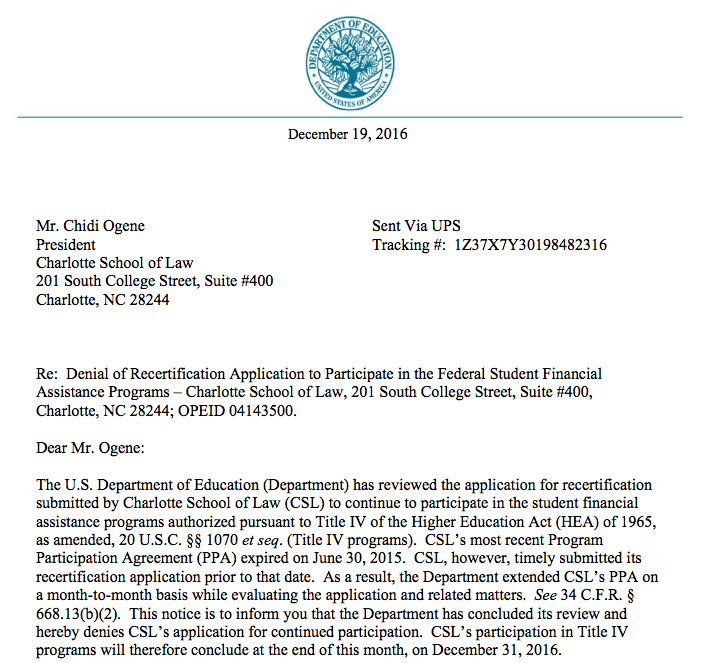
Resources Link for Law Students Encountering Problems
- Regional Law School Contact Information
- Professional Bar Associations
- Mental Health Substance Abuse Resources
- Financial Aid
- Department of Education Statement
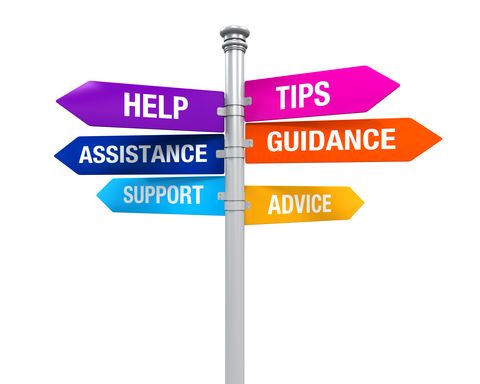
Stress, Mental Health and Substance Abuse Assistance
BarCARES – Confidential, Free of Charge
Help in dealing with problems that might be causing distress or to identify resources for longer term assistance
BarCARES Coordinator: 919-929-1227 or 1-800-640-0735
https://www.ncbar.org/members/barcares/
NC Lawyer Assistance Program – Confidential, Free of Charge
Short-term counseling and crisis management, intervention assistance, assessments, referrals to outside resources (such as therapists and treatment centers), long-term aftercare case management and follow up, on-going support, or just a safe space to discuss your issues
Charlotte Area: 704-910-2310
Website: www.nclap.org
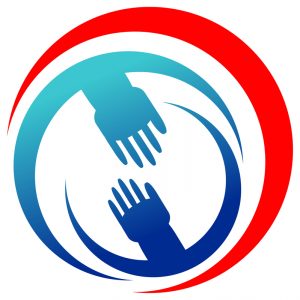
Financial Aid
Access Group –nonprofit organization providing financial education resources and services for students and schools with a particular focus on legal education
General Inquiries: 484-653-3300 or general@accessgroup.org
Website: www.accessgroup.org
U.S. Department of Education, Office of Federal Student Aid
FAQ page regarding school closures and the effect on student aid: https://studentaid.ed.gov/sa/about/announcements/closed-school#ed-help
Federal loan Discharge information: https://studentaid.ed.gov/sa/repay-loans/forgiveness-cancellation/closed-school
Federal loan Deferment and Forbearance: https://studentaid.ed.gov/sa/repay-loans/deferment-forbearance#deferment-eligibility
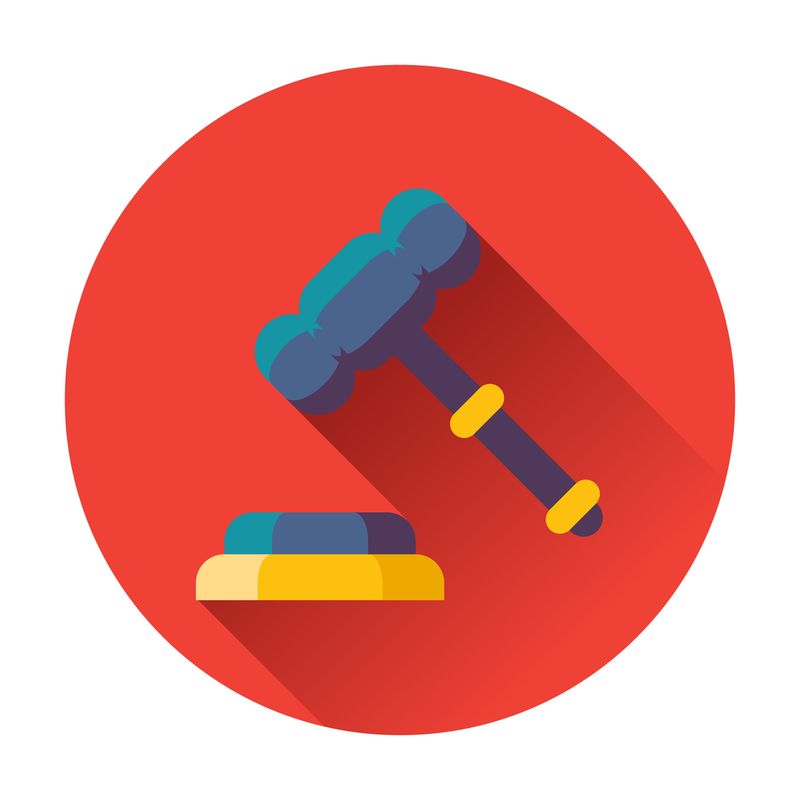
Transferring Law Schools – Regional Law School Information
Campbell School of Law
Transfer/ Visiting: https://law.campbell.edu/page.cfm?id=203&n=transfers-visitors
Charleston School of Law
Admissions: https://www.charlestonlaw.edu/Prospective-Students/How-to-Apply.aspx
Elon School of Law
Transfer: https://www.elon.edu/e/law/admissions/how-to-apply/transfer-students.html
Visiting: https://www.elon.edu/e/law/admissions/how-to-apply/visiting-student-applicants.html
Duke School of Law
Transfer/ Visiting: https://law.duke.edu/admis/apply/transvis/
NCCU School of Law
Transfer: https://www.nccu.edu/law/admissions/transfer-students.cfm
Visiting: https://www.nccu.edu/law/admissions/visiting-student.cfm
University of Richmond School of Law
Transfer/ Visiting: https://law.richmond.edu/admissions/apply/
University of South Carolina School of Law
Transfer: https://gould.usc.edu/how/transfer/
Visiting: https://gould.usc.edu/how/transfer/visitinfo.cfm
UNC School of Law
Transfer: https://www.law.unc.edu/admissions/applynow/transfer/
Visiting: https://www.law.unc.edu/admissions/applynow/visiting/
UVA School of Law
Transfer: https://www.law.virginia.edu/html/prospectives/transfers.htm
Wake Forest School of Law
Transfer: https://admissions.law.wfu.edu/apply/transfer/
William and Mary Law School
Transfer https://law.wm.edu/academics/programs/transferstudents/
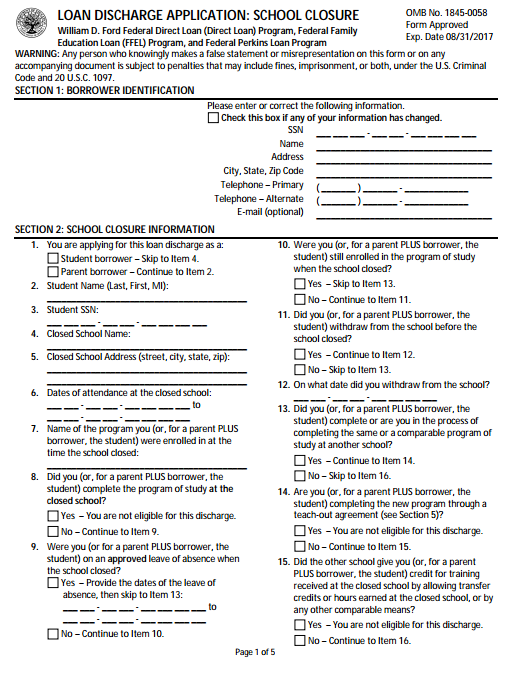
SEE MORE: LOAN DISCHARGE APPLICATION – CLOSED SCHOOL
Bar Associations
NCBA Law Student Division
Website: https://www.ncbar.org/members/divisions/law-students/
Division Director Will Quick: 919-573-6213 or wquick@brookspierce.com
American Bar Association
Section of Legal Education and Admissions to the Bar: https://www.americanbar.org/groups/legal_education.html
Approved Law Schools FAQ: https://www.americanbar.org/groups/legal_education/resources/frequently_asked_questions.html
ABA Law Student Division: https://abaforlawstudents.com/law-student-leadership/meet-our-leaders/
See More: Charlotte School of Law Denial Letter 2016
Department of Education Statement
Charlotte School of Law Statement
https://www.charlottelaw.edu/charlotte-school-of-law-statement-on-department-of-education-action.html
The Prevalence of Substance Use and Other Mental Health Concerns Among American Attorneys
In February 2016 the Journal of Addiction Medicine published a report describing Substance Abuse and Mental Health issues among attorneys. Establishing itself as one of the most comprehensive studies to date, utilizing nationwide data, the results are troubling at best.
Of attorneys engaged in the practice of law:
- Twenty One percent meet the description of a “Problem Drinker”
- Twenty Eight percent live suffer from some level of depression
- Nineteen percent exhibit anxiety symptoms
The highest incidence of issues manifests itself within the grouping of “young” lawyers, defined as attorneys whom have practiced ten years or less.
The Journal surveyed 12,825 employed attorneys, evaluating alcohol and drug use, and assessing also symptomatology of stress, depression, and anxiety.
Study Results:

- “Substantial” rates of behavioral health problems were found
- Positive for Hazardous, Harmful, and Potentially Alcohol-Dependent Drinking (20.6%)
- Significant Levels of:
- Depression (28%)
- Anxiety (19%)
- Stress (23%)
- Younger age predicted higher frequencies of drinking and quantity of alcohol consumed
Attorneys experience problematic drinking that is hazardous, harmful, or otherwise consistent with alcohol use disorders at a higher rate than other professional populations. Mental health distress is also significant. These data underscore the need for greater resources for lawyer assistance programs, and also the expansion of available attorney-specific prevention and treatment interventions.
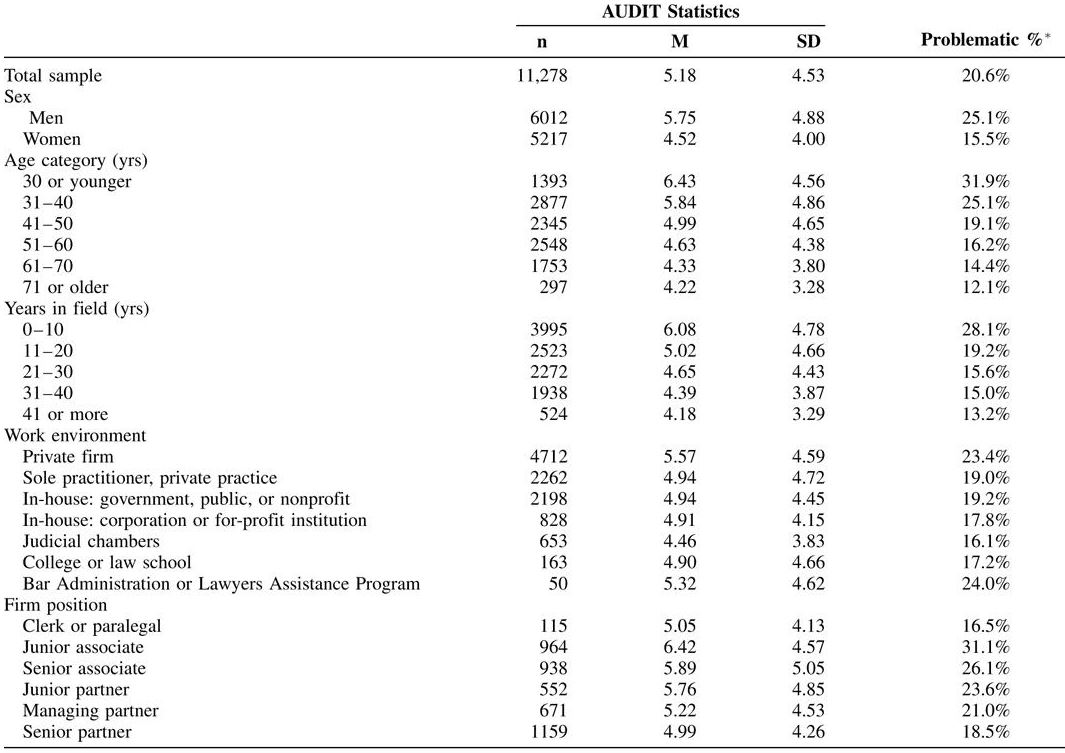
See More: North Carolina Lawyer Assistance HOW TO GET HELP
https://www.youtube.com/watch?v=J3L6Nwr8fp8
10 Warning Signs of Alcohol Addiction
- Hiding Use or Lying About Consumption
- Using Alcohol to for Relief
- Relaxation
- Feeling Better
- Taking the Edge Off
- Drinking more on a Tough Day
- Loss of Memory
- Blacking Out
- Broken Promises
- Forgetting Conversations
- Confusing People or Events
- Inability to Stop or Limit Consumption
- “Finishing Off” open bottles of Wine, Beer, or Alcohol
- Risky Drinking
- Consumption before or during work
- Against Doctor’s Orders
- Medication Issues
- Long Term Conditions
- Not Meeting Responsibilities
- Problems at Work
- Loss of Clients
- Loss of Staff
- Missing Projects
- Affecting Day-to-Day Duties
- Problems with Relationships
- Trouble with Friends, Significant Other, and Family
- Functional Tolerance
- Ability to Drink More
- Increased Consumption in Amount and Frequency
- Increased Amount Necessary
- Withdrawal from Non-Consumption
- Reaction to Lack of Alcohol
- Anxiety
- Nausea
- Depression
- Tiredness
- Irritability
- Trouble Sleeping
- Loss of Appetite
- Shakiness or Trembling
- Reaction to Lack of Alcohol
- Inability to Quit for more than short periods of time
The stated warning signs are just that: Signs of the potential for alcohol abuse and problematic drinking.
One need not be deemed an “alcoholic” to fall within the category of a problem drinker.
Indeed, increased imbibing may other mask mental health issues such as depression and anxiety.
 Carolina Criminal Defense & DUI Lawyer Updates
Carolina Criminal Defense & DUI Lawyer Updates